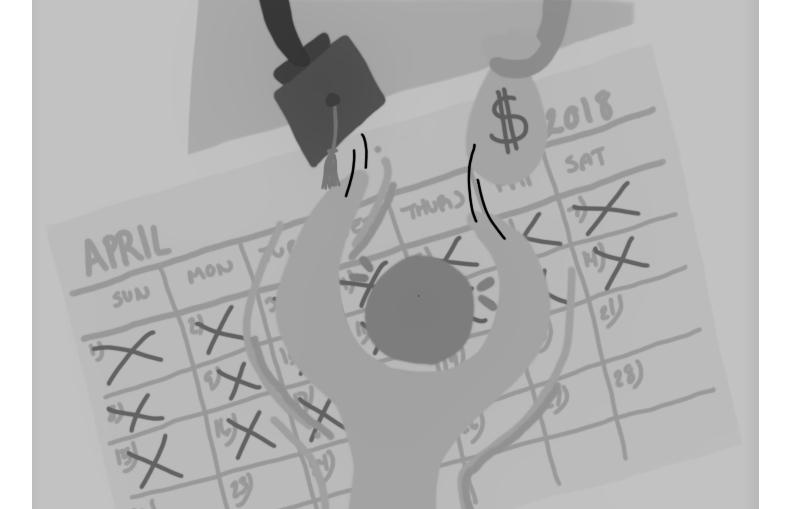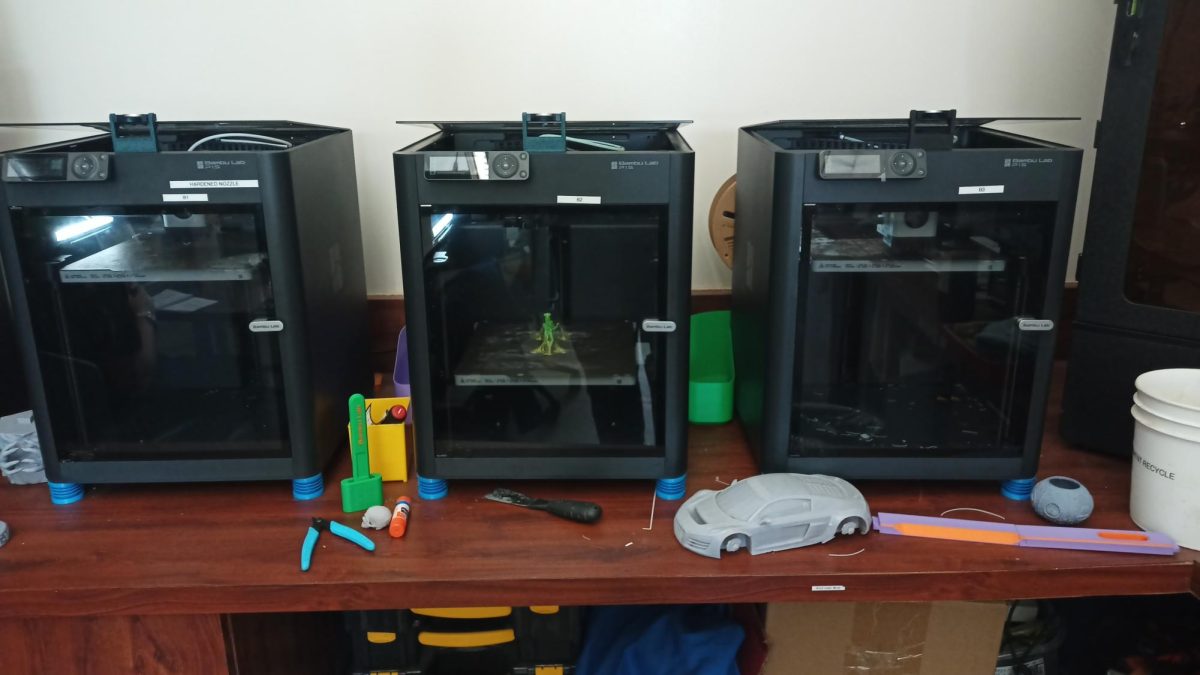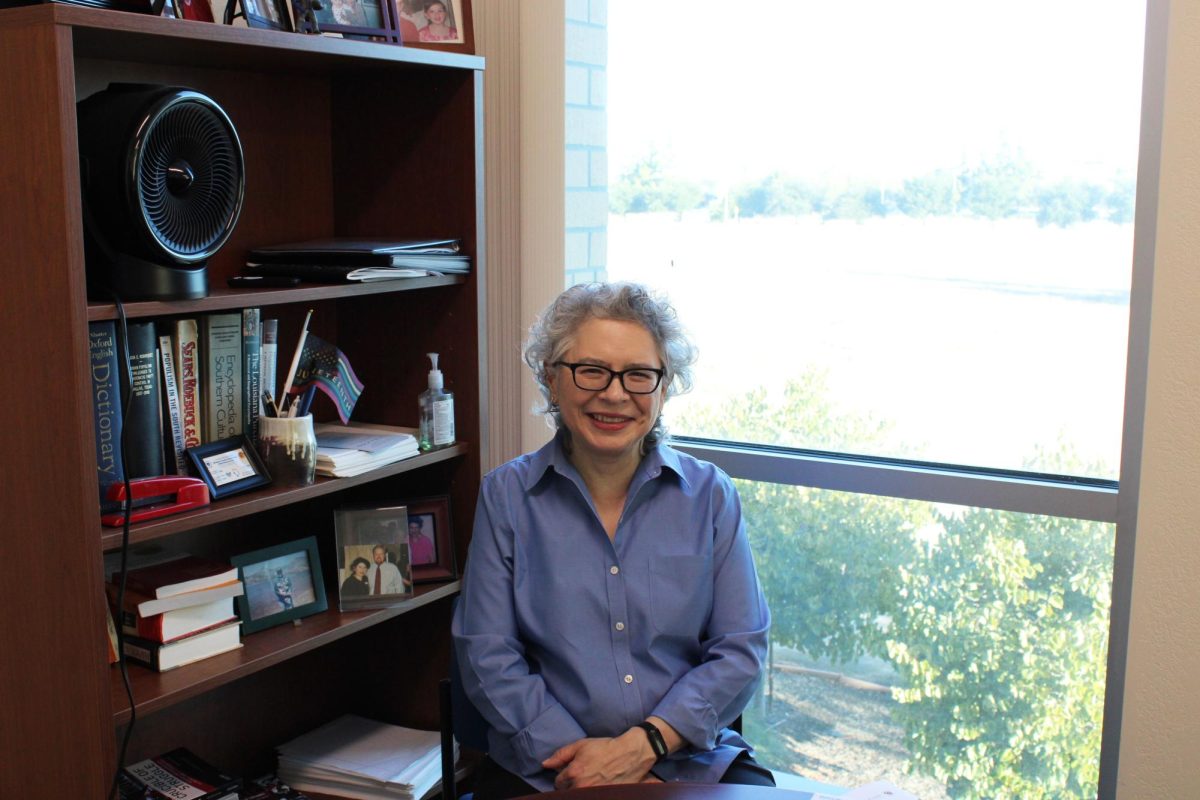Opinions Editor
On Oct. 17, 2018, The California State University System put out a press release indicating that graduation rates in the CSU schools are improving due to the Graduation Initiative 2025.
“That is the system wide initiative to raise our graduation rates, so we have several targets to achieve for four to six-year graduation rates for first time students and for transfer students. We are intending to achieve those targets by the year 2025,” said Dr. Vernon Harper, associate vice president for academic programs.
CSUB has slowly been able to improve their four-year graduation rates for first-time freshmen, according to the data collected from the Institutional Research, Planning and Assessment (IRPA).
“Six-year graduation rates are improving…the four-year rates are kind of stalled,” said Dr. Jenny J. Zorn, provost and vice president for academic affairs.
College students are expected to graduate in four years, but why is it so important?
April King, a former CSUB academic adviser for the Academic Advising and Resource Center (AARC), spent time talking to students on the importance to graduate in four years.
“College is not meant to be this long-term thing. It’s supposed to be a stopping point in your career. The longer you prolong college, guess what, you’re prolonging the start of your career as well,” said King.
Students who stay longer also must think of the financial consequences of delaying their graduation date.
“It’s going to cost them less money to do it in four years,” said Zorn.
According to a study by Complete College America, the organization behind the “15 to Finish” campaign, it could cost a student who attends a public four-year college, $22,826 for every extra year, on average.
For some students, graduating college in four years isn’t realistic and there could be many factors that play into it. Here are some reasons why a student wouldn’t graduate in the expected time and what they can do about it.
15 units a semester
In order to graduate from CSUB, students need 120 units in total. To be considered a full-time student, students need to take at least 12 units a semester. However, only taking the required number of units could do more harm than good.
“The way to graduate in four years is 15 units a semester, 30 units a year,” said King.
When King would meet with students, she said one of the most frequent comments she heard was that parents would encourage their children to only take the required number of units to be considered full-time because they don’t want their children becoming too overwhelmed.
“They hear 15 units and they kind of panic about the weight of that course load… ‘Oh my gosh I can’t handle 15 units’ and they have parents reinforcing that,” said King. “So those types of students just have this fixed mindset that they’re going to go at their own pace, they’re going to take their time, and they don’t care if they graduate in four years. They just want to get a degree.”
King believes parents should not be too involved in the decision making process of choosing classes.
“In terms of parent involvement, in general it should just be support. This is the time where students are really finding themselves and finding out how to discern and answer how to navigate problems,” said King.
However, if students take 15 units a semester, it’s important that they pass their classes.
“The students also have a responsibility, as well in terms of making sure that they pass their classes,” said Harper. “All students are required to have 120 units to graduate, so the fewer classes that students have to retake gives them a better chance to graduate in four years.”
Although, it’s not always the student’s or parent’s fault for why they can’t take 15 units. Sometimes unexpected events happen that can take a toll as well. Zorn’s department understands that sometimes life can get in the way of finishing college.
“Many of our students are working full-time or they have families, so they can only go part-time to school, so they’re not going to finish in four years,” said Zorn.
King finds that in situations where a student has no control, it’s best take care of themselves first.
“Patience is the key and not pushing themselves past their limits,” said King. “At least they can do 12 units a semester and figure out where to put those excess. It’s literally a math game. You can do 12 [units] in the fall, 12 in the spring, and then six in the summer.”
A major doesn’t define a career
Students may feel unsure of their career decisions and their capabilities.
“Most students are like “oh yeah I want to graduate in four years.” The students that don’t, typically they don’t know what kind of career they want. They’re pretty lost from the very beginning. There’s a lot of ambivalences about being in college in the first place from these students. There’s a lot of lack of self-efficacy in their capabilities,” said King. “Not meeting with their advisors, just taking classes willy-nilly, so taking classes that don’t meet requirements.”
When students become unsure of themselves and their career prospects, they also tend to change majors frequently. A brief report from the Education Department’s National Center for Education Statistics, found that about 1 in 10 students will change their majors more than once.
“The first thing I usually do is demystify them of the myth that their major determines their careers. It doesn’t,” said King. “Majors [are] not this deterministic end all be all be thing but instead something that they’re passionate about.”
Financial hardships
“[It certainly does happen that] students that end up in a circumstance where their financial limitations impacts their ability to graduate in four, six years,” said Harper.
According to data from the 2017/18 Academic Year California Resident Fees, students will pay $7,146.00 per academic year. This amount is only counting state university tuition and campus fees. Students still need to pay for housing, whether that be on or off-campus, books and supplies, parking permits, bills and food. Some students just can’t afford it all.
“Even if they had financial aid, it might not cover the whole thing and [they] just couldn’t afford to come back,” said Zorn.
Working part-time can help relieve some of the spare costs of school, but King says it becomes difficult managing both work and school.
“They should only work between 20-30 hours and it should also entail some type of understanding from your employer that you’re a student first,” said King. “If you don’t have to work, don’t.”
Transferring
Transferring can cause a delay in a student’s graduation date if the student isn’t taking the steps they need to prevent it.
“If they go to a private school it’s going to be completely different, if they go out of state it’s going to be completely different, if they go to a UC it’s going to be completely different,” said King.
If students plan to transfer, they need to speak with advisers from both institutions to make sure the transfer is as smooth as possible and to make sure a student can transfer.
“So there’s steps. Do they accept upper or lower division transfers meaning do you to be a junior or can you be below a junior? Do they have any prerequisites? Have I met them? It really requires a lot of proactivity on a student’s part,” said King.
How CSUB is supporting their students
“What we need to do as an organization is constantly look at ourselves and make sure that we’re doing everything that we can to support student’s progress to graduation in four years,” said Harper
Zorn and her department are currently working on a strategy to help CSUB students.
Midterm break assessment is a strategy where professors take notice of at-risk students in their classes to inform an advisor during the midterm of the semester to get them the help they need.
“Midterm time, faculty can look at their roster and check off any students that maybe could benefit from an advisor contacting them and saying they look like they’re kind of at risk,” said Zorn. “We have resources on campus to help them with.”
Processing graduation checks earlier can also help students become aware of the classes they still need to take. Graduation checks are applications to graduate that must be filed two semesters ahead of time.
“We’re working on processing grad checks sooner. So, when you get to be a junior, you need to submit a grad check and we check and make sure you’re on track. [We] give you time so if you’re missing something that you’re not thinking about, that you can have a chance to get that course in your senior year,” said Zorn.
Zorn also said that they started using block scheduling on certain majors last fall for incoming freshmen. Students are given their schedules to make sure that they are taking 15 units.
“If [students] only took 12 units then they’re not going to graduate on time, but we’re seeing those units increase,” said Zorn.
In 2017, CSUB’s AARC began encouraging students to complete 15 units and the message seems to have made an impact.
“The provost has made considerable investments to make sure that there were enough sections for students to take classes in order to graduate,” said Harper.
At the end of the day, if students want to graduate in four years, the first step is taking the initiative.
“Make sure you talk to your [staff and faculty] advisor and make sure that you know your paths to graduation. I don’t want them to be here longer if they can get out in four years, if they have everything they need then graduate. Don’t stay if you don’t have to,” said Zorn.
Artwork by Iyana Haggins, The Runner.








